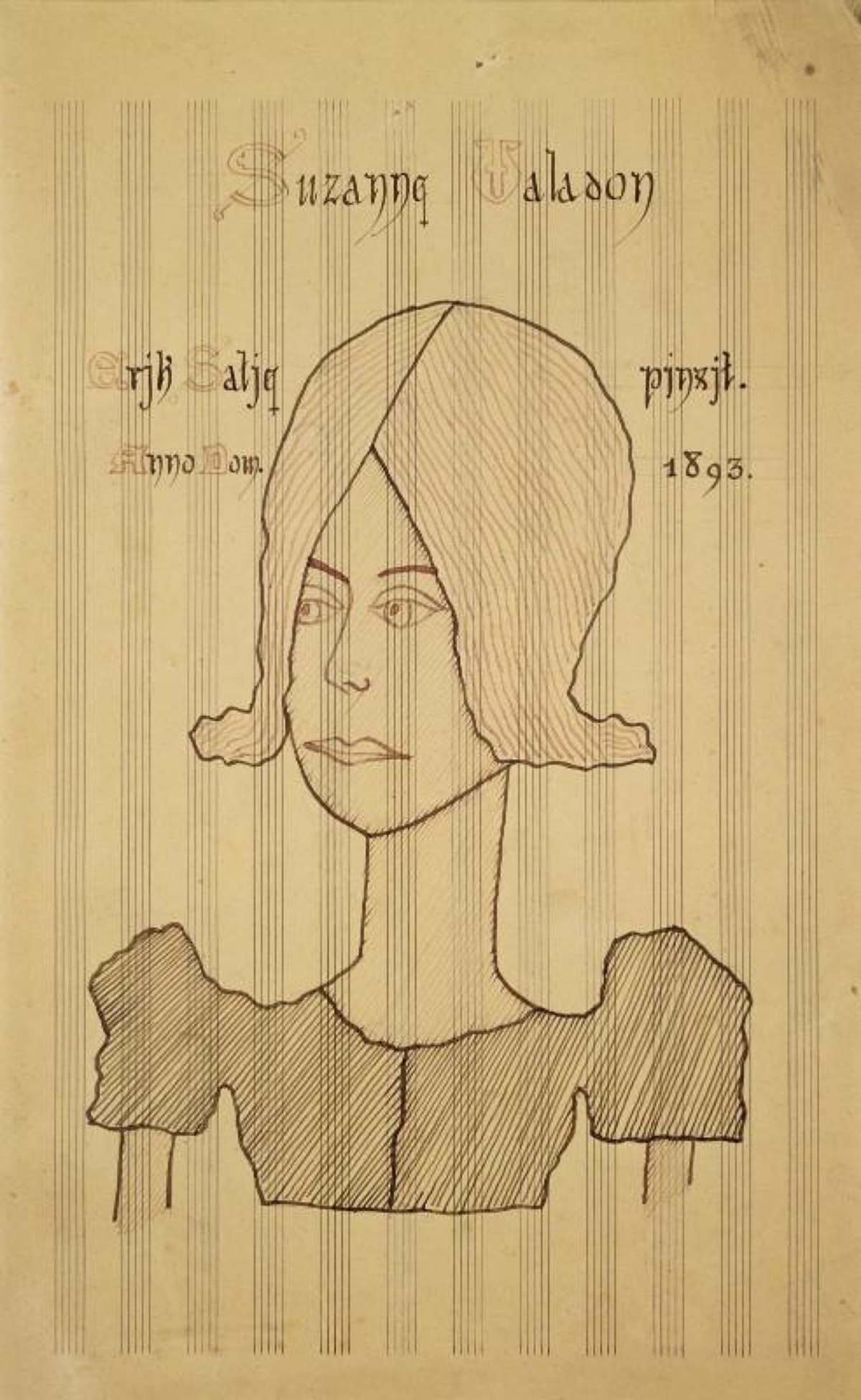Veux and voeux. This new episode on piano, The Vocabulary of Love, is all about wants and wishes. From chocolat, Liebesfrühling, to the romance of the composer Erik Satie and the painter Susanne Valadon, to end on a high note with Satie's composition "Je te veux" sung by my friend Gabrielle Robein and accompanied on the piano. Listen also to previous episodes in this series: Easy Piece and Matinee in A. You can find the script of the audio below. 💫
 |
| Erik Satie by Susanne Valadon, 1893 |
Vocabulary of Love
by An Paenhuysen
singing voice: Gabrielle Robein
Movement 1
“Veux”
Je veux.
I want.
Not to be mixed up with “voeux” - wishes.
“Veux” and “voeux” - wants and wishes - are connected.
If you want something, you want the idea of something.
In this case “je te veux”: the idea of you.
“Je te veux.”
I want you.
Love has a language: French.
My friend Shuai is learning French. He is now at level B1. I asked him to give me French love words:
(Voice of Shuai saying: L’amour, chocolat, bisou bisou)
Movement 2
Love also has a season: spring, when everything starts to blossom.
Love and spring can be merged in German language: “Liebesfrühling”.
Liebesfrühling is the title of a composition by Clara and Robert Schumann:
Spring of Love.
(Background: short excerpt of Spring of Love)
The music of Schumann is very romantic, coming about in the Romantic Era of the first part of the 19th century.
Movement 3
I only play Erik Satie. Erik Satie is end of the 19th, beginning 20th century.
Satie had one love, the painter Suzanne Valadon. The romance was very short and intense.
One letter from Satie to Suzanne Valadon has been preserved. It was written on beautiful paper adorned with a coat of arms in peacock blue:
Paris, the 11th of the month of March 1893.
Dear little Biqui,
Impossible
To stop thinking about your whole
Being; you are in Me complete; everywhere,
I see nothing but your exquisite eyes, your gentle hand
And your little child’s feet.
You, you are happy; My poor thoughts
Are not going to wrinkle your transparent forehead;
And more than worry at not seeing Me.
For Me there is only the icy
Solitude that creates an emptiness in my head
And fills my heart with sorrow.
Don’t forget that your poor friend
Hopes to see you at least at one of these three rendezvous:
This evening at 8.45 at my place
Tomorrow morning again at my place
Tomorrow evening at Dede’s (Maison Olivier)
Let me add, Biqui cherie, that I shall on no account get angry if you can’t come to any of these rendezvous;
I have now become terribly reasonable; and in spite of the great happiness it gives me to see you
I am beginning to understand that you can’t always do what you want.
You see, little Biqui, there is a beginning to everything.
I kiss you on the heart
Erik Satie
Movement 4
For Easter Sunday 1893, Satie wrote his shortest composition ever as a present for Valadon. It consist of only a greeting: Bonjour Biqui Bonjour.
(Sound: Bonjour Bique Bonjour accompanied on piano)
Movement 5
In 1902 Satie wrote a Waltz for the cabaret in Paris. The text is by Henry Pacory: Je te veux.
I have been playing it on the piano with my friend Gabrielle Robein singing along.
(Background: Gabrielle Robein singing and An Paenhuysen playing the piano)
Pay attention that “que toute ma chaire soi tienne” is not to be confused with the English “chair” - a furniture piece to sit on -
Although Satie is known for furniture music, which is music that acts on the background and is to be listened away from.
“Chair” means “flesh” in French: “que toute ma chaire soi tienne” , literally “let all my flesh be yours”
Other words in the vocabulary of love are
Lèvres
Coeur
Corps
Caresse
Promesse
Sagesse
Tristesse
Tien
Mien
…
